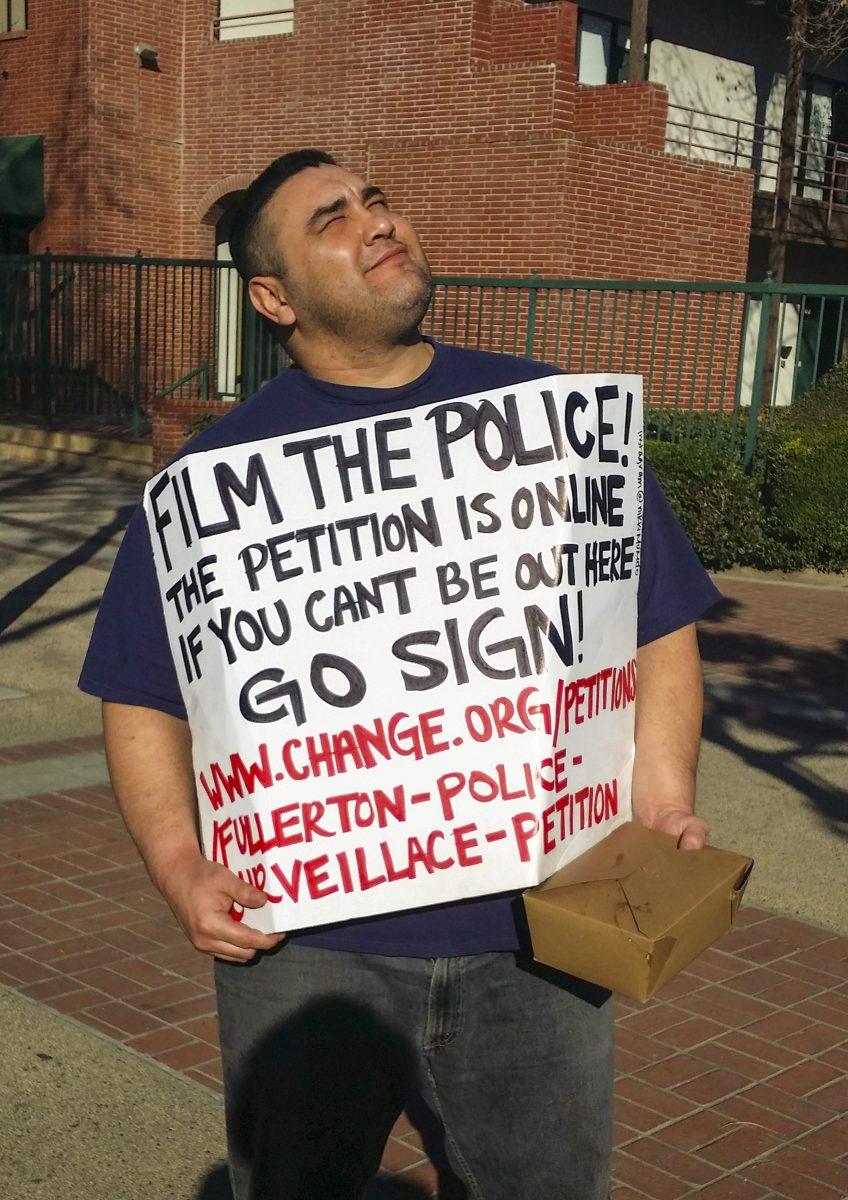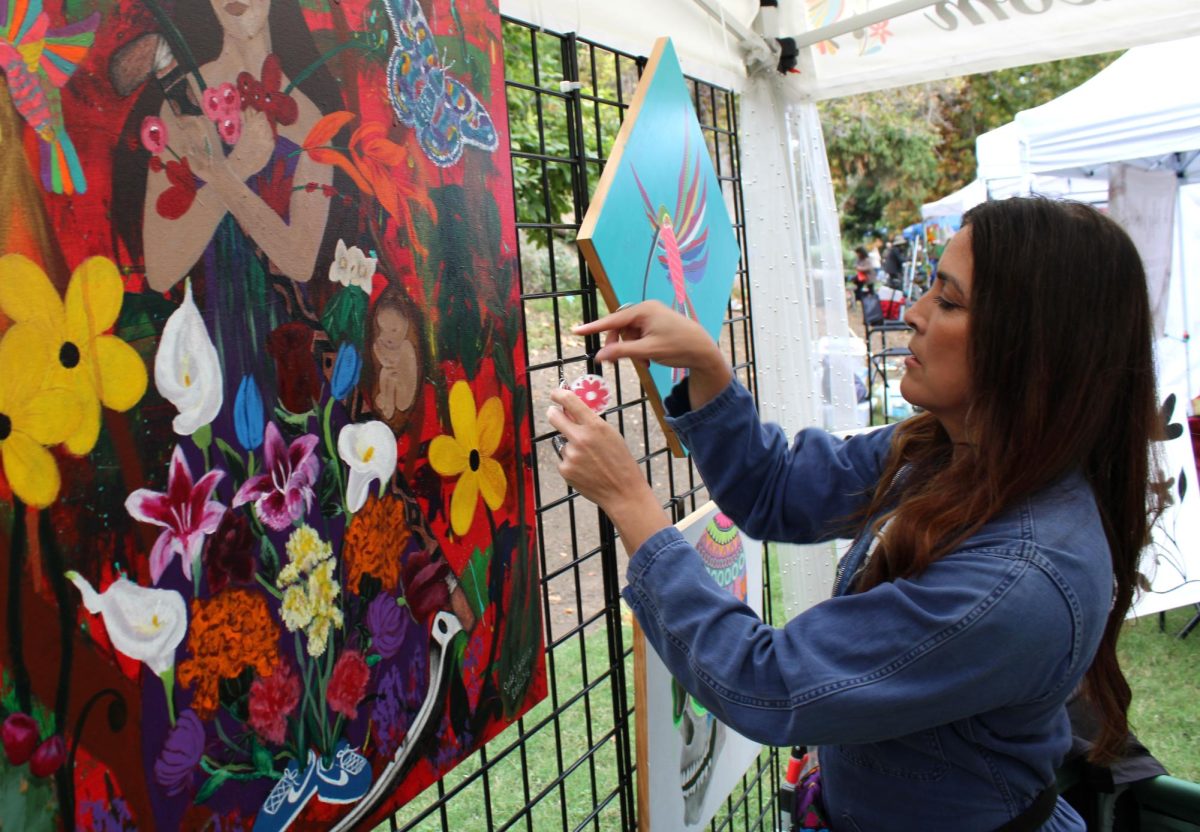JOSA LAMONT | INTERIM NEWS EDITOR
The people that shared shelters with Kelly Thomas are finding camaraderie in the aftermath of his death.
In the knitted community of Fullerton transients, Kelly Thomas was known throughout.
Though not many people knew him closely, many people had positive impressions of him, so when the officers who beat him to death, Manuel Ramos and Jay Cininelli, were acquitted of all charges protests erupted at the memorial of his death.
“He was 120 lbs. wet,” said Edward Elisalda, a bouncer at a local bar that had stopped Thomas from checking cars for unlocked doors. “They could’ve stopped him in one hit, but they decided to beat his a** for half an hour.”
People gathered around Thomas’ memorial to help clean up after the anarchist group “All Coppers Are Bastards” spray-painted some of the surroundings and vandalized the area.
Overall protests were peaceful according to Zeek Levine, a transient who had shared a drink with Thomas on many occasions.
James Mayfield, a transient who found Thomas to be polite and had slept with him in local shelters, said the protests were “a great opportunity for people to express how they feel” and claimed around 200 people showed up.
Around 6 p.m. riot police and five squad cars broke up the gathering when protesters started blocking buses.
Despite the brutal beating of Thomas between N. Harbor Boulevard and S. Pomona Avenue on Commonwealth Avenue in Fullerton and the ensuing protests, transients interviewed say they still feel safe.
Transients exaggerated the depth of the relationship they had with the victim, and handed out literature on shelter information at the site of his memorial.
Though they spurn the media bombardment of Thomas’ family, many had information to bring forward and are disappointed not to have been able to speak in the trial.
Mayfield said Thomas was always polite, though he’d only spoken with him a few times.
Levine said Thomas only got angry with him on one occasion when he told him he didn’t have a cigarette, though they had only spent time together a few times.
“(Thomas) was a piece of (expletive)”said Elisalda. “That dude was an a** hole.”
Though many indigent have stories of alleged harassment, most stories involve submission by the citizen, and caution on the part of police that ends without arrests.
People in solidarity with police feel the situation has more complexities than people may understand.
“I have this sense and need of power, cause I never probably had it before,” said Oliver Thompson, former Chief of Police at Englewood and Instructor at Riverside City College. “So you give me, at the end of this training you give me the badge, you give me the gun, you give me all the implements of my office. Don’t come down on me at the end with Kelly Thomas and say I’ve done something wrong.”
According to Thompson, who predicted the acquittal, the acceptance of police brutality comes from a social morality, and stems from what people as a group, are willing to accept. “All (the situation) needs is to have people willing to stand up to the bullies. Ramos was a bully, Cincinelli was a bully… those guys are bullies but the thing of it is: if there’s a fight going on do I want a wuss or do I want a bully? I want a bully.”
In the case of Cincinelli and Ramos, society has spoken in the language of the system through the decisive action on the case.







